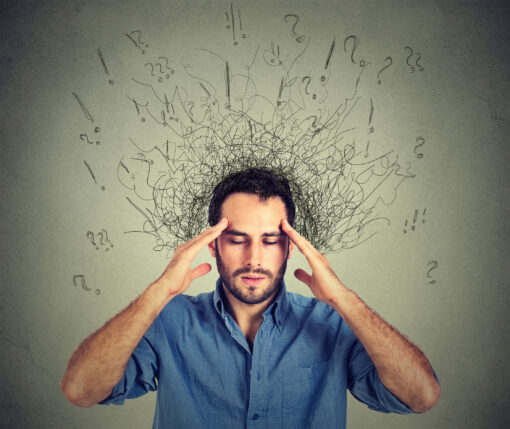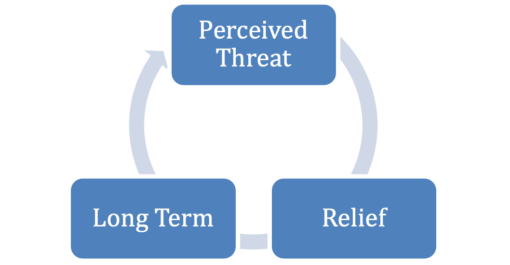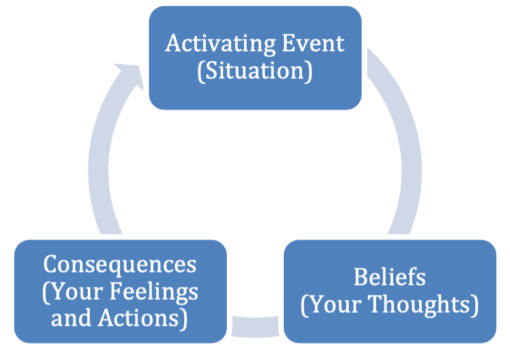Are Anxiety & Depression the same thing?
Is this something you’ve wondered or been unsure about?
It’s completely okay to not necessarily understand the difference between Anxiety & Depression, and if you’re reading this – I’m so glad you have asked. Here I hope you can get a better understanding for yourself, or for loved ones struggling with their mental health.
So, let’s compare them simply, side by side –

| Anxiety Explained… | Depression Explained… |
| It is your response to a perceived threat and can be explained as an irrational fear. In some cases though there is no real danger present, and it can be an exaggerated perception. This differs for everyone. | Negative feelings, e.g. sad, frustrated, unhappy, irritable, guilty, overwhelmed, empty, worthless. Feelings that just won’t go away. Depression is about your mood and having a low mood. |
| What Causes Anxiety? | What Causes Depression? |
| There can be both psychological (stress and events),as well as biological factors that cause anxiety. | Biological factors such as genetics, hormones, and brain chemicals. Psychological factors such as thinking style, grief or loss, stressful events, personality traits all contribute. |
Now that we have looked at the overarching differences, let’s dive a little deeper into Anxiety & Depression, and the effects they can have on individuals –
| Anxiety Symptoms | Depression Symptoms |
| – Ongoing worry – Shortness of breath – Feeling on edge and agitated – Disrupted Sleep – Muscle tension – Headaches and dizzy and faint – Lack of concentration – Nervous – Nauseous – Shakiness These are all physiological responses to the perceived threat. | – Feeling sad or having negative feelings towards yourself – Changes in sleep patterns – Changes in appetite or weight – Feeling overwhelmed by pessimism, anger, guilt or irritability – Consistent varying emotions – good mood, then low mood (up and down) – Inability to enjoy life – Reduced interested in sex – Poor concentration and memory – Low motivation to do things that used to matter to you – Feeling exhausted |
The Cycle of Anxiety
Perceived Threat: Scanning for Fear and Physiological Response
Relief: Avoidance, withdraw or escape or in some way avoid the threat of danger (this Is a short-term solution). Responses and distress decrease for the time being as the threat is removed.
Long Term: The perception of the fear remains and intensifies over time only to reconfirm your misinterpretations of the situation making it even more difficult to face in the future.

The ABCs of Depression
A = The Activating Event (the situation that has occurred)
B = Your Beliefs (the thoughts you are having)
C = The Consequences (your feelings and your actions taken)

| What can help Reduce Anxiety? | What can help Reduce Depression? |
| – Breathing re-training – Testing negative predictions – Situational exposure – Mindfulness | – Engage in enjoyable activities – Increase your exercise – Identify and challenge negative thoughts – Be aware of unhelpful things styles |
There are clearly several differences between the two challenges that so many people work through day to day, and whilst many can experience both Anxiety & Depression, they have different effects.
To summarise, the simple way to look at the difference between Anxiety & Depression is:
Anxiety = Response to a perceived THREAT.
Depression = Persistent low mood in response to your thoughts.
Written by Kylie Hutchings Mangion – Provisional Psychologist – www.creatingchange.net.au

